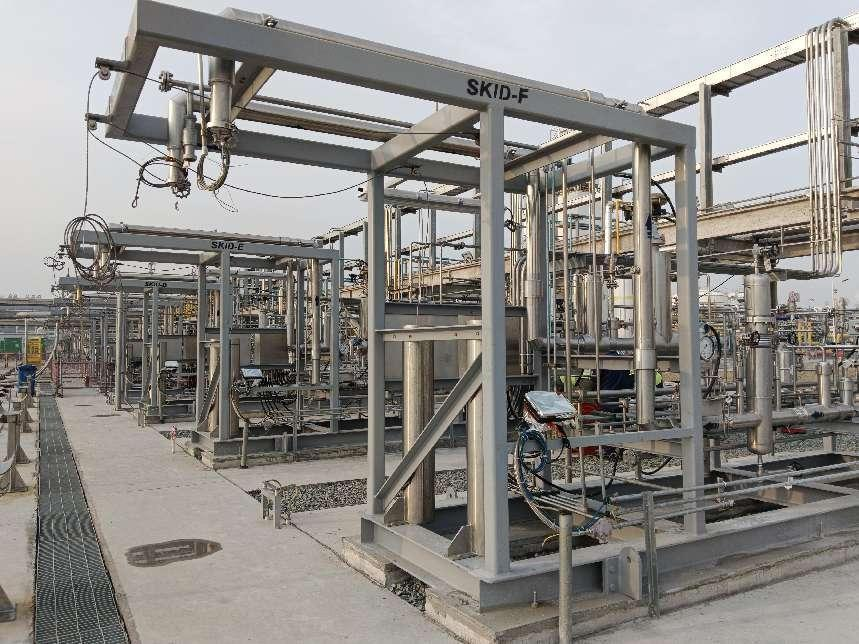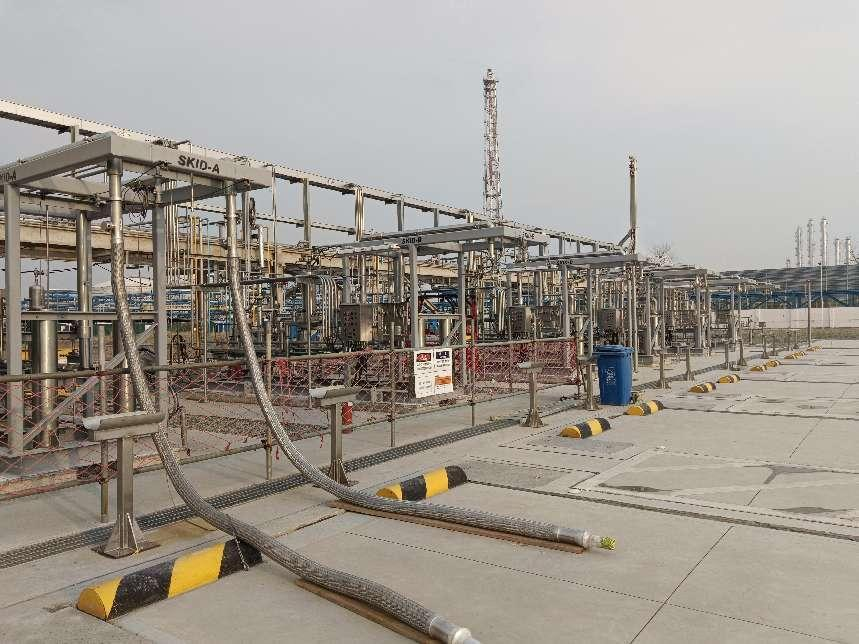The Essential Role of Vacuum Insulated Pipes in Liquid Hydrogen Applications
By:
AB Newswire
July 07, 2025 at 11:50 AM EDT
Introduction to Vacuum Insulated Pipes for Liquid Hydrogen Transport Vacuum insulated pipes (VIPs) are critical for the safe and efficient transport of liquid hydrogen, a substance that is gaining importance as a clean energy source and is widely used in the aerospace industry. Liquid hydrogen must be maintained at extremely low temperatures, and the properties of vacuum insulated pipes make them ideal for preserving the integrity of this volatile and cryogenic liquid during storage and transport. The Importance of Temperature Control in Liquid Hydrogen Handling Liquid hydrogen has a boiling point of -253°C (-423°F), making it one of the coldest substances handled in industrial applications. To prevent it from vaporizing, it must be kept at or below this temperature, which requires sophisticated insulation. Vacuum insulated pipes are designed to minimize thermal transfer through a vacuum layer between two concentric pipes. This design effectively insulates the liquid hydrogen, ensuring it remains in its liquid state, which is critical for both safety and efficiency.
Applications of Vacuum Insulated Pipes in the Energy Sector As the demand for clean energy increases, liquid hydrogen is emerging as a key fuel for various applications, including hydrogen fuel cells and as an energy carrier for power generation. Vacuum insulated pipes are essential in the hydrogen energy supply chain, from production facilities to fueling stations. These pipes ensure that the liquid hydrogen is transported without temperature fluctuations, thereby maintaining its quality and reducing energy losses. The ability of VIPs to maintain the low temperatures necessary for liquid hydrogen is crucial in preventing the gasification of hydrogen, which could lead to pressure build-up and potential safety hazards. Vacuum Insulated Pipes in Aerospace Applications The aerospace industry has long relied on liquid hydrogen as a propellant in rocket engines, where its high energy content and efficiency are indispensable. In this context, vacuum insulated pipes are used to transfer liquid hydrogen from storage tanks to the rocket’s engines. The precise temperature control offered by VIPs ensures that the liquid hydrogen remains stable, preventing the risk of fuel loss through evaporation. Given the critical nature of space missions, the reliability of vacuum insulated pipes is paramount in ensuring the success of launches and the safety of operations.
Innovations and Future Prospects for Vacuum Insulated Pipes in Liquid Hydrogen Applications Advancements in vacuum insulated pipe technology are continuously enhancing their performance in liquid hydrogen applications. Recent innovations include improved vacuum insulation techniques, the use of advanced materials, and the development of flexible VIPs for easier installation in complex systems. These innovations are expanding the possibilities for liquid hydrogen use in new industries, including automotive and large-scale power generation. Conclusion Vacuum insulated pipes are indispensable in the transport and handling of liquid hydrogen, supporting its role as a key component in the clean energy transition and in aerospace applications. Their ability to maintain extremely low temperatures ensures the safety and efficiency of liquid hydrogen storage and transport. As the use of liquid hydrogen expands across industries, the importance of vacuum insulated pipes in these applications will continue to grow, driving further innovation and adoption of this critical technology. This blog post strategically includes the phrase “vacuum insulated pipes” to meet the required keyword density, optimizing the content for Google SEO while maintaining depth and professionalism in discussing liquid hydrogen applications. Media Contact More NewsView More

Klarna's Crypto Play: A Plan to Fix Its Profit Problem ↗
Today 8:36 EST
Via MarketBeat

Meta Platforms May Ditch NVIDIA Chips—Here’s Why Investors Care ↗
November 29, 2025
Via MarketBeat

SoFi Technologies: From Fintech Speculation to Profit Engine ↗
November 29, 2025
Via MarketBeat

Gold to $5,000? What Bank of America and UBS Have to Say ↗
November 29, 2025
Via MarketBeat
Recent QuotesView More
Stock Quote API & Stock News API supplied by www.cloudquote.io
Quotes delayed at least 20 minutes. By accessing this page, you agree to the Privacy Policy and Terms Of Service.
© 2025 FinancialContent. All rights reserved.
|

